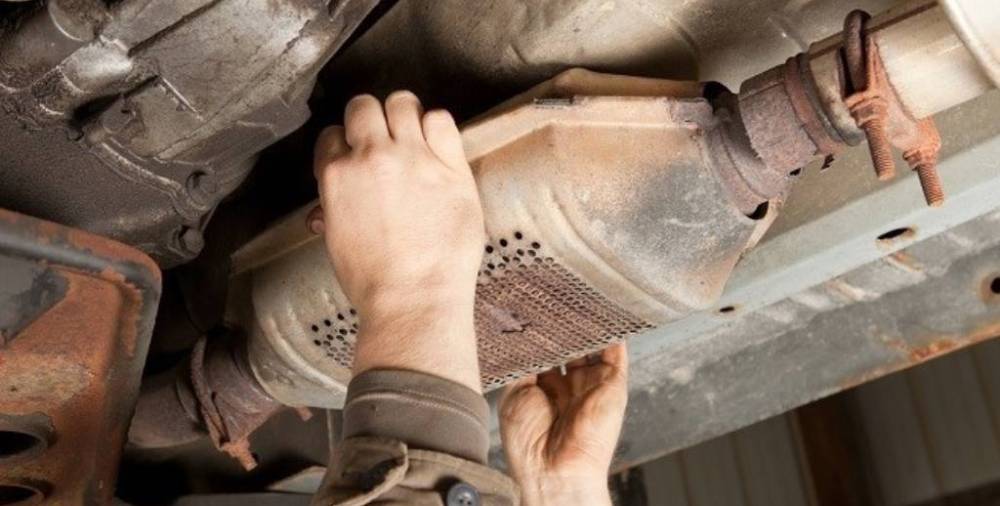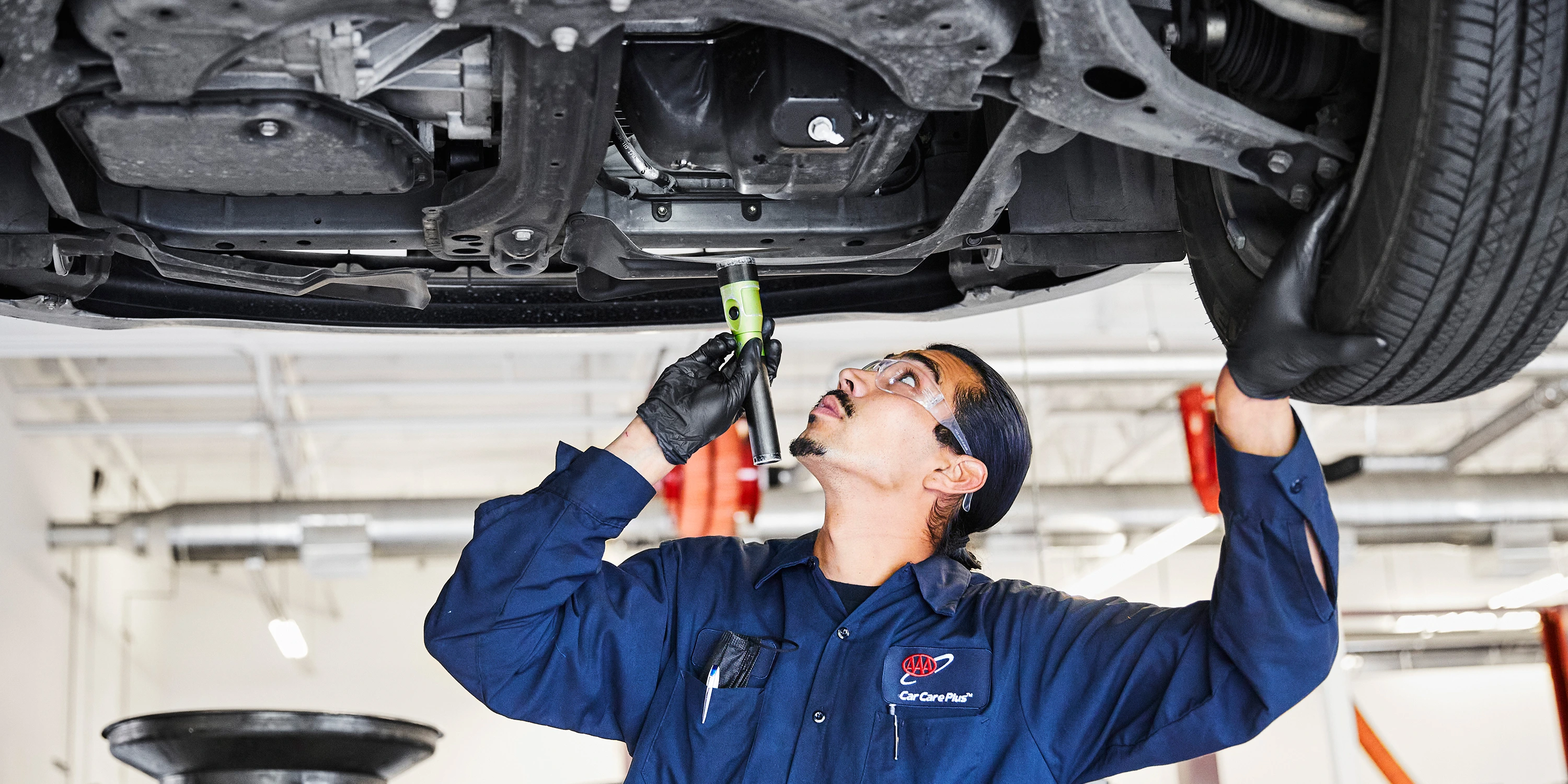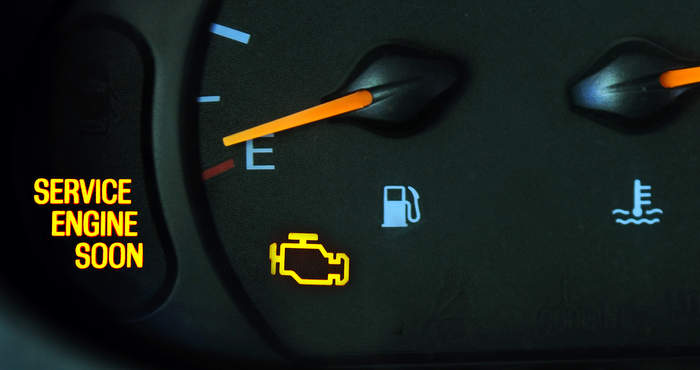Call or Text us at

At Beach Auto Repair, our skilled automotive mechanics specialize in addressing concerns related
to catalytic converters in vehicles. Whether it's reduced engine performance, a
malfunctioning oxygen sensor, or a clogged converter, our team swiftly identifies the
issue and proceeds with the necessary repairs.
Decreased engine efficiency in your car can arise from a faulty oxygen sensor or a
catalytic converter that's become obstructed. Our experts excel at skillfully and
promptly resolving these problems, ensuring optimal converter function and vehicle
performance. Feel free to get in touch with us for top-tier catalytic converter car
services that guarantee a smoother and more environmentally friendly driving experience.
Call or Text us at



Cars need catalytic converters to reduce harmful emissions and comply with environmental regulations. Here are the main reasons why catalytic converters are essential:
1. Emission Control: The primary function of a catalytic converter is to reduce the levels of harmful pollutants emitted by the vehicle's engine. It specifically targets three major pollutants: carbon monoxide (CO), nitrogen oxides (NOx), and hydrocarbons (HC). These pollutants contribute to air pollution and have detrimental effects on human health and the environment.
2. Carbon Monoxide (CO) Reduction: The catalytic converter helps convert carbon monoxide, a poisonous gas produced during the combustion process, into carbon dioxide (CO2), which is less harmful.
3. Nitrogen Oxides (NOx) Reduction: Nitrogen oxides are formed when nitrogen in the air reacts with oxygen under high temperatures and pressures in the engine. The catalytic converter uses chemical reactions to convert nitrogen oxides into nitrogen (N2) and oxygen (O2), reducing their harmful impact on air quality.
4. Hydrocarbon (HC) Reduction: Hydrocarbons are unburned fuel components that are released into the atmosphere. The catalytic converter aids in oxidizing and breaking down these hydrocarbons into water (H2O) and carbon dioxide (CO2), reducing their harmful effects.
5. Environmental Regulations: Catalytic converters are mandated by law in many countries to meet stringent emission standards. Regulations such as the Clean Air Act in the United States and Euro standards in Europe require vehicles to have functioning catalytic converters to control emissions and protect air quality.
By incorporating a catalytic converter into the vehicle's exhaust system, harmful pollutants are converted into less harmful substances before being released into the atmosphere, helping to reduce air pollution and its associated environmental and health risks.
Catalytic converters generally do not require regular servicing or maintenance. They are designed to be durable and have a long lifespan, typically lasting for the life of the vehicle under normal operating conditions. However, there are a few factors to consider:
1. Damage: Catalytic converters can be damaged by impacts, such as driving over speed bumps or hitting objects on the road. Physical damage can result in a loss of efficiency or even complete failure. It's important to inspect the exhaust system regularly for any signs of damage and have it repaired if necessary.
2. Contamination: The catalytic converter can become contaminated by substances that are not part of the normal combustion process, such as engine oil or coolant. This can happen due to issues like a malfunctioning engine or a leaking gasket. Contamination can impair the converter's effectiveness and may require cleaning or replacement.
3. OBD-II System: Modern vehicles are equipped with an On-Board Diagnostics (OBD-II) system that monitors the performance of the catalytic converter. If the OBD-II system detects a fault or a drop in efficiency, it will trigger a "Check Engine" light on the dashboard. In such cases, it is advisable to have the vehicle inspected by a qualified mechanic to diagnose and address the issue.
While catalytic converters typically do not require routine maintenance, it's important to address any damage or contamination promptly to ensure the converter's proper functioning. Regular vehicle maintenance, including checking the exhaust system during inspections, can help identify any potential issues early on.




A failing catalytic converter may exhibit several signs, indicating potential issues that require attention. Some common signs of a failing catalytic converter include:
1. "Check Engine" Light: If the catalytic converter's efficiency drops below a certain threshold, the vehicle's onboard diagnostics system will trigger a "Check Engine" light on the dashboard. It serves as a warning sign that something is amiss and requires inspection by a qualified mechanic.
2. Reduced Engine Performance: A failing catalytic converter can lead to decreased engine performance. You may experience reduced power, sluggish acceleration, or a noticeable decrease in fuel efficiency.
3. Rattling Noises: Inside the catalytic converter, there is a substrate that can deteriorate over time. If it breaks apart or becomes loose, you may hear rattling noises coming from the exhaust system, indicating a potential problem with the catalytic converter.
4. Strong Odors: A failing catalytic converter might produce a distinct odor of rotten eggs due to the presence of sulfur compounds. This smell could indicate that the converter is not effectively converting hydrogen sulfide into sulfur dioxide.
5. Failed Emissions Test: During vehicle inspections or emissions tests, a failing catalytic converter may cause the vehicle to fail the test due to high levels of pollutants in the exhaust emissions.
If you notice any of these signs, it is advisable to have your vehicle inspected by a qualified mechanic to determine the exact cause of the issue and take appropriate measures.
Let us know how we can help.